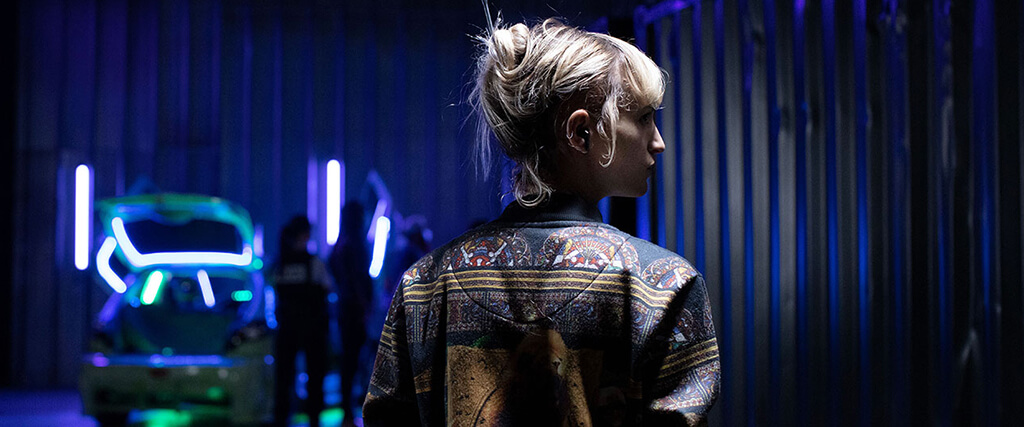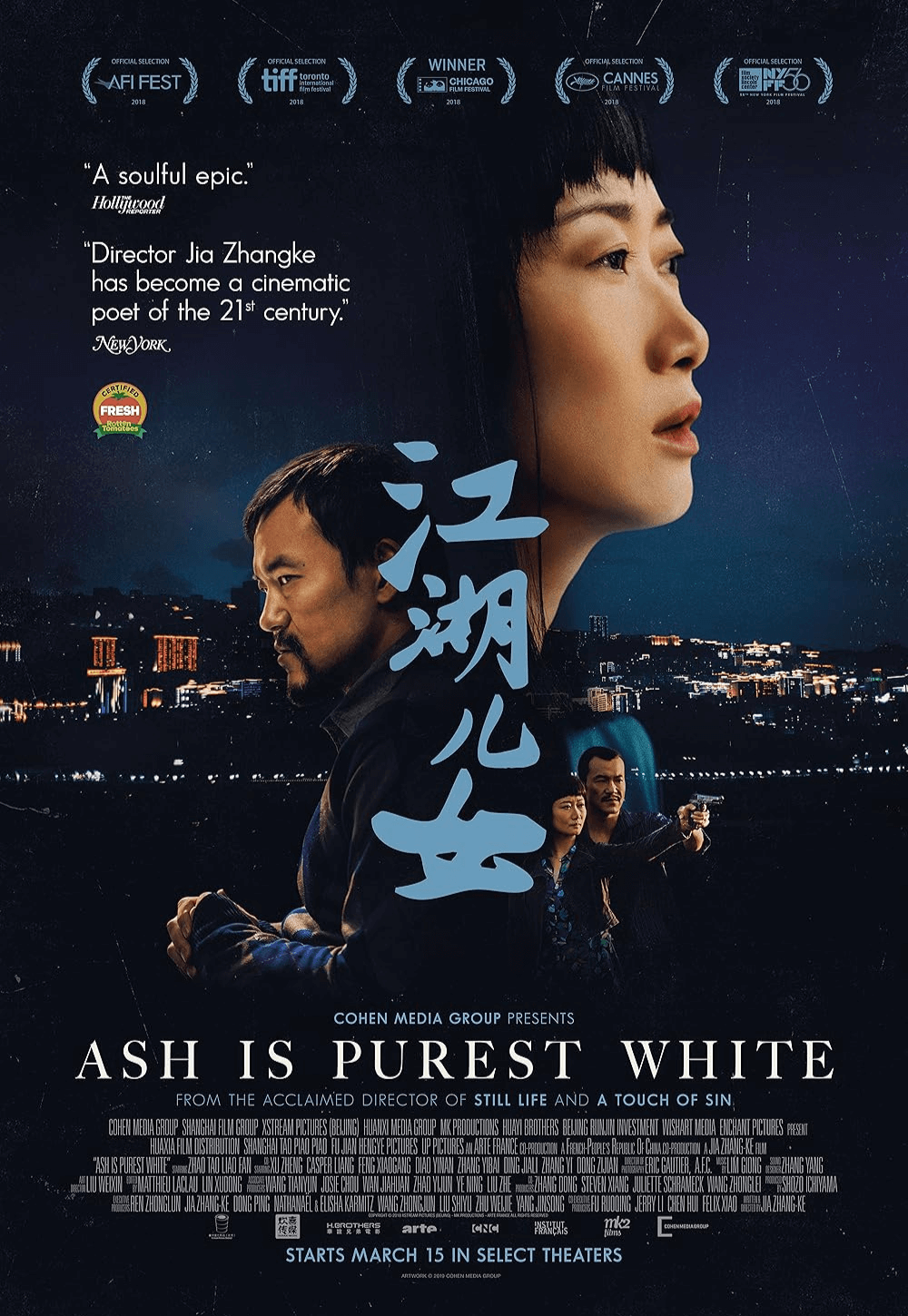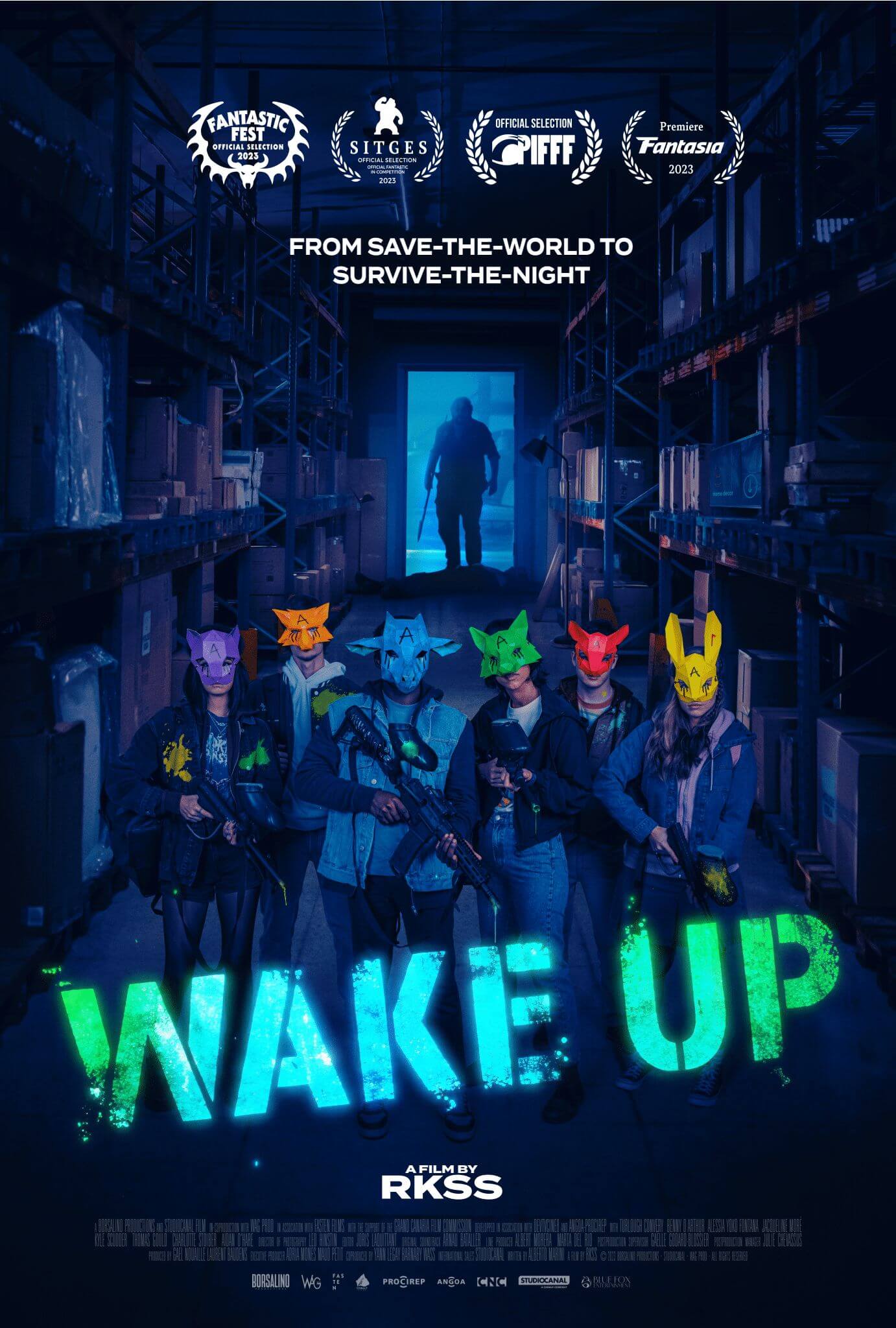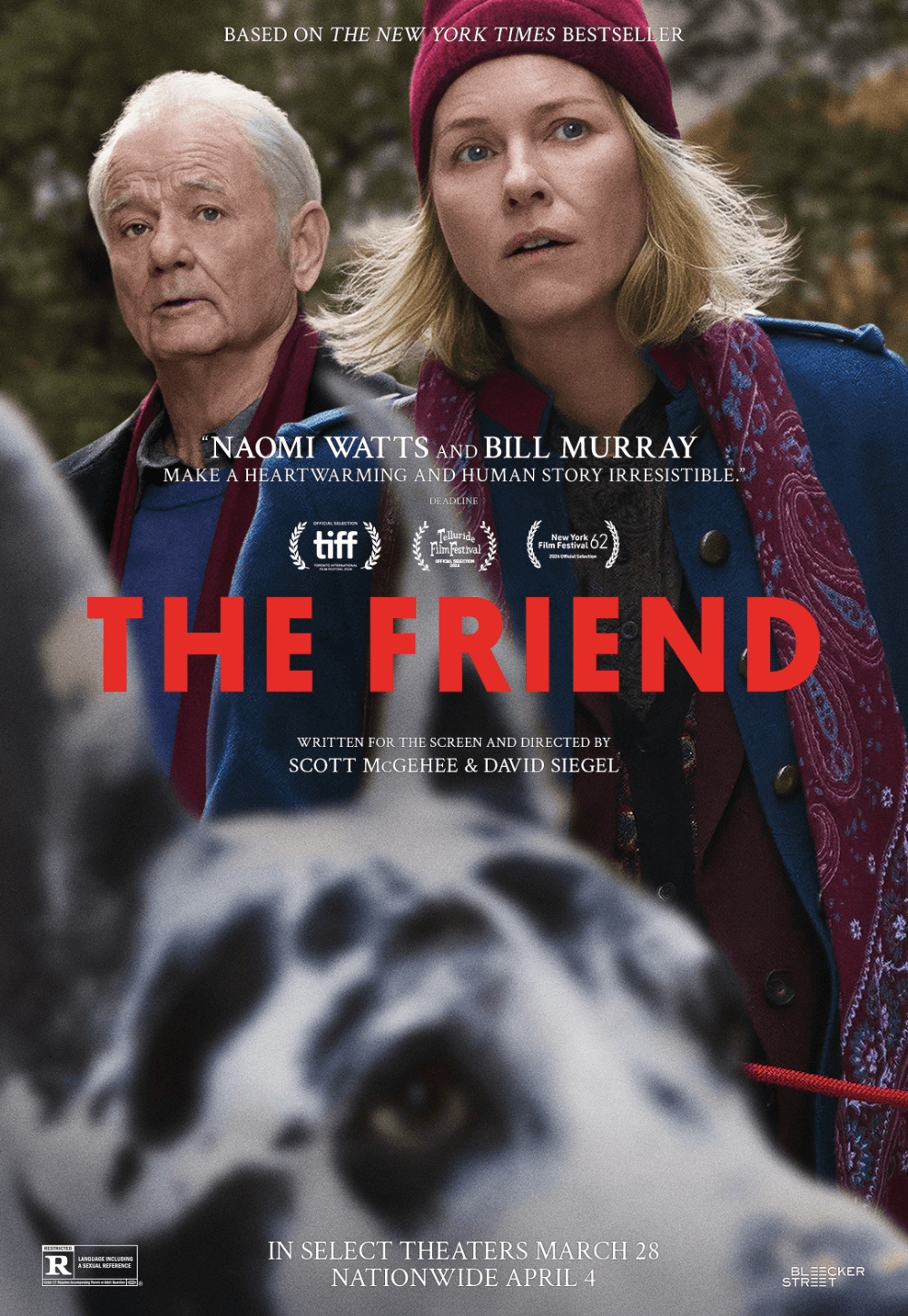
Top 10 Films of 2021
By Brian Eggert | January 19, 2022
2021 turned out to be stellar, largely due to the year-end influx of festival favorites and pandemic holdovers. Had you asked me in September what kind of movie year 2021 was, I would have said, “Average at best.” But almost every week in the fourth quarter—the last few weeks in December, in particular—introduced something special, to the extent that my Top 10 list went from a foregone conclusion to a downright challenge to compile.
Then again, every year is a good year for movies. In my 15 years of writing on Deep Focus Review, I haven’t experienced a single bad year of moviegoing. Some years have been better than others, but none of them have been bad—not when you see hundreds of movies. So it always ends up feeling like a struggle to organize my favorites and, after a couple months, there’s usually a title or two that I regret not placing higher on my list.
With the impermanence of best lists in mind, here is my list of the Top 10 Films of 2021, plus a couple of extras. What’s on your list?
HONORABLE MENTION: PG: Psycho Goreman
The audience for Psycho Goreman is narrow. If Troma-style gore and over-the-top dark humor is your thing, you’ll enjoy this splatterfest. If you’re nostalgic about the aesthetic of bad ‘80s genre fare, you’ll appreciate its throwback production. Here’s a movie that gets a laugh from exploding heads and power-crazed little girls. Admittedly, I watched this movie three times in 2021, largely because it’s so damn funny and shocking and absurd. It’s a movie I showed to friends or told them to watch (those into this sort of thing, anyway), and I wasn’t disappointed with their responses. And while it may be difficult to justify as great art next to any other title on my list of favorites this year, I cannot deny the stupid smile it puts on my face each time I watch it.
RUNNER UP: There is No Evil
It’s rare for anthology films to work so well on me. But Mohammad Rasoulof’s devastating four-part drama cuts into the Iranian state’s practice of required military service, which may lead to a conscripted citizen having to carry out capital punishment. The four stories consider how the effects last well beyond the act itself—some live their entire lives with their conscience pressing on them. Barely screened in the US, There is No Evil wasn’t easy to see—a reality that will only become more pronounced as the months and years pass. Seeking it out is an act of support for an artist who, after his film was banned in Iran, smuggled it out of the country to ensure audiences could see it. Such defiance is commendable in itself, but the level of personal expression and humanism on display is staggering.
10. Drive My Car
One of the year’s most awarded films, Ryusuke Hamaguchi’s patient, inward drama places the viewer into an uncertain headspace and mode of inner searching. Hidetoshi Nishijima stars as a widower who reflects on his marriage to his deceased, unfaithful wife—all while overseeing a production of Uncle Vanya, managing relationships with his actors, and embracing the quiet he shares with his new driver (Tōko Miura). Hamaguchi’s long, immersive, and ponderous storytelling occupies an imposing three-hour runtime, but it races by thanks to curiously precision-like editing and intentionally structured narrative. Along with Wheel of Fortune and Fantasy, Hamaguchi demonstrated in 2021 that he’s a major contemporary filmmaker whose entire filmography demands to be explored.
9. The Power of the Dog
When I think of Jane Campion’s revisionist Western, I think of clockwork. It’s such a perfectly calibrated system of intricate characters and intentionally placed details, ticking away moment after moment toward an inevitable conclusion. Campion’s mastery as writer-director, and also a director who guides her actors—Benedict Cumberbatch, Kirsten Dunst, Jesse Plemmons, and Kodi Smit-McPhee are all terrific—is something to behold. Watching the film is like appreciating a Swiss clock for all its efficient inner workings and the beauty of its construction. Campion elegantly establishes her characters and watches them topple over in fascinating ways that have proven ripe for analysis. You might think such precision would put the audience at a distance, but the surprising reality is that it’s all the more engrossing for it.
8. The Last Duel
Ridley Scott’s latest Medieval epic is among his most thoughtful and well-constructed films, thanks in large part to the expert screenplay by Nicole Holofcener, Ben Affleck, and Matt Damon. Dissecting the events that led to the final duel-to-the-death in France’s history from three perspectives (represented by Damon, Adam Driver, and Jodie Comer), the film reminds us that the majority of Western history has been written by white men, leaving women secondary or altogether robbed of their agency. Without resorting to overt messages, the film’s subtle shifts between perspectives immerse the viewer in the characters’ subjectivity, underscoring how privilege is unshakably entrenched. Scott’s production is massive and gorgeous, ending with a breathless duel that uses intense action to underscore its themes.
7. Annette
French auteur Leos Carax teamed with Ron and Russell Mael, better known as the band Sparks, for one of the strangest films of 2021. The term musical doesn’t begin to classify this dazzling and eventually sobering story about a volatile stand-up comedian (Adam Driver), an opera singer (Marion Cotillard), and their marionette child Annette. Employing classical imagery to post-modern effect, the film immerses you in each moment, even if the entire picture can sometimes feel erratic and tonally imbalanced. But its unpredictability, along with its curious way of feeling both within and outside of every moment, is part of its charm. By the final scene, featuring the year’s best child performance by Devyn McDowell, Annette reveals the sneaky way it has worked its way under your skin. And weeks later, after you can’t get it out of your mind, you realize just how special it is.
6. Quo Vadis, Aida?
Bureaucracy leads to atrocity in Bosnian director Jasmila Žbanić’s disquieting film about the 1995 Srebrenica massacre. A United Nations translator (Jasna Đuričić, in an astounding performance) races to save her family as the Bosnian Serb Army, headed by Ratko Mladi, rounds up Muslims from the area. Tragically, red tape prevents her from intervening, and slow communication between UN officials, who have bigger fish to fry, mean thousands will die. Shot with documentary realism, the film brings to light a story that, even at the time, remained underrepresented by the news media. The same is true of this movie, which demands to be sought out and confronted, even if the subject matter proves challenging. Žbanić’s film acknowledges that some have chosen to forget, which is the only way they know how to heal, while others live with the reality every day. This is urgent, humanist, and political filmmaking that’s also somehow beautiful in its execution.
5. Petite Maman
Céline Sciamma explores an entire lifetime of parent-child bonding in the 72-minute span of Petite Maman, her follow-up to 2019’s Portrait of a Lady on Fire. The performances by real-life twins Joséphine and Gabrielle Sanz, playing daughter and mother respectively, capture how every child becomes their parent in some way or another. Whether you categorize it as a time-travel yarn or a coming-of-age story, the film’s subtle way of unraveling doesn’t call attention to the mechanics of its plot—only the emotional core. Sciamma’s story is tender and endearing, but never overly sentimental. I spent much of my review comparing the film to Hayao Miyazaki’s My Neighbor Totoro (1988), which is the highest praise I can think of for a fantasy about imagination and family.
4. Nightmare Alley
Films like Nightmare Alley don’t get made all that often anymore. Then again, they were never made quite like this. Guillermo del Toro adapts the grimy, relentless book into a cinematic fantasy that could only exist onscreen in such alternatively grotesque and shimmering delight. It’s part film noir, part elaborately staged period piece, yet it might be the film that best exemplifies del Toro’s obsession with monsters. Bradley Cooper’s smart but doomed huckster arrives on a sublimely constructed carney scene only to find his way into the mentalist circuit, where his inner monster is tempted out of its hole by a seductive Cate Blanchett, embodying a femme fatale. Del Toro assembled the year’s best ensemble (in addition to Cooper and Blanchett: Toni Collette, Willem Dafoe, Richard Jenkins, Rooney Mara, Ron Perlman, Mary Steenburgen, David Strathairn, Holt McCallany, Clifton Collins Jr., and Tim Blake Nelson) for a faithful literary adaptation and, ultimately, a boldly cynical story of one man’s downward spiral.
3. Parallel Mothers
Pedro Almodóvar once again demonstrates that, as he gets older, his willingness to confront the past head-on deepens. Penélope Cruz, the director’s late-career muse, gives the year’s finest female performance as a photographer who hopes to unearth family secrets buried since the Spanish Civil War. In her personal life, her willingness to confront the parentage of her newborn child marks a similar conflict, representing the national need to acknowledge trauma to overcome it. Although Almodóvar resists many of the more flamboyant touches that define his aesthetic (it’s a gorgeous and elaborately designed film, regardless), he confronts political factors directly after years of addressing them only through analogy and symbolism. In some ways, it’s his most straightforward film on formal terms, but it’s also achingly emotional, raw, and sophisticated filmmaking.
2. Licorice Pizza
Licorice Pizza is the kind of film I’ll want to revisit again and again. Paul Thomas Anderson’s nostalgic and episodic story of an unlikely romance follows two people who belong together, even if they probably shouldn’t be together. Alana Haim and Cooper Hoffman give two of the year’s most transfixing performances in a film that looks and sounds like it was made in the 1970s. It’s a wandering experience of ups and downs, seemingly random detours, and memorable cameos (Bradley Cooper, Sean Penn, Tom Waits) that ultimately build a heartening love story. Every moment of Anderson’s superb direction and eye for immersive period design completely submerges the viewer in the setting. Best of all, the film feels like something deeply personal for the director, who assembled friends and family to make a sprawling, nonjudgmental, and unselfconscious look at a bygone era and its free-wheeling sense of danger and romance.
1. Titane
If there’s a common thread among several films in my 2021 list, it’s that they’re each a sensation machine—films with an undeniable force behind them, driving their emotions, formal choices, and moment-to-moment experience. Licorice Pizza, for instance, sweeps us up in a propulsive romance. Titane’s sensations are far more unpleasant on the surface. No other film challenged my empathy with such visceral filmmaking than Julia Ducournau’s provocative masterpiece—a film often reductively described as “about a woman fucking a car.” But that’s just the launchpad for this wildly unconventional and inspired story about a murderess who becomes a surrogate son. Not only have I never seen anything quite like the film, which is praise enough, but I also have never seen a filmmaker embrace deviation with such sublime beauty.
Ducournau explores slasher killings, self-mutilation, parenthood, bodily changes, and above all non-binary gender in ways that will challenge most. As I wrote in my review, “Titane employs these potent tools—the stuff of fire, metal, sex, death, and birth—to get at something thematically elemental about how labels like ‘male’ and ‘female,’ often perpetuated by patriarchally established modes of understanding the world, are woefully inadequate.” But by the incredible final sequence, all the pain and abjection leads to a tender moment that defies expectation. It’s a one-of-a-kind film, and a Palme d’Or winner, that might leave you speechless, repelled, weeping, or exhilarated—and if you’re lucky, all of the above.
Consider Supporting Deep Focus Review
I hope you’re enjoying the independent film criticism on Deep Focus Review. Whether you’re a regular reader or just occasionally stop by, please consider supporting Deep Focus Review on Patreon or making a donation. Since 2007, my critical analysis and in-depth reviews have been free from outside influence. Becoming a Patron gives you access to exclusive reviews and essays before anyone else, and you’ll also be a member of a vibrant community of movie lovers. Plus, your contributions help me maintain the site, access research materials, and ensure Deep Focus Review keeps going strong.
If you enjoy my work, please consider joining me on Patreon or showing your support in other ways.
Thank you for your readership!
Brian Eggert | Critic, Founder
Deep Focus Review




